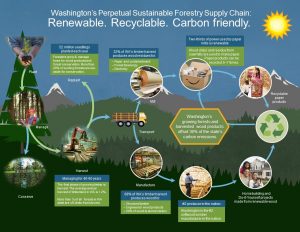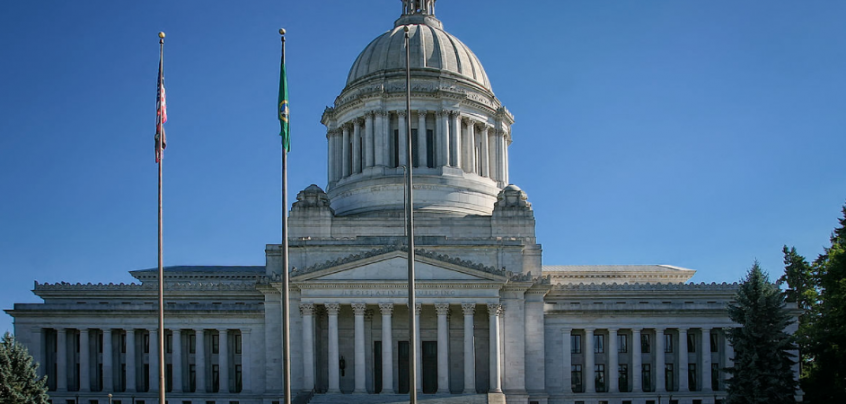The 2021 Washington legislative session wrapped up in late April after an historic 105 fully virtual days. The session began promising restraint and a focus on only a handful of policy issues. Indeed, the total bill count was lower than any session since the 1980’s. That said, many of the bills that did pass contained monumental and long sought-after policy shifts in areas such as tax regressivity, climate change, environmental justice, gun control, police accountability, criminal narcotic possession, tenant rights, and more. The result for forest landowners was generally positive in that nothing critical passed against the interest of landowners and a few silver linings emerged along the way.
The brightest of the linings was the passage of the Commissioner of Public Lands’ groundbreaking bill focused on wildfire prevention and forest health. The Legislature committed $125 million to implement the bill, which modernizes the state’s fire preparedness and improves the health of forests across the landscape. The bill also reforms some of the operations of the state and solidifies cooperation among state and federal forest managers. Perhaps most significantly for forest landowners, the bill also creates the largest, and most targeted, forest sector workforce development initiative in modern memory.
The Legislature also took historic action on climate change, passing both a cap & trade program and a low carbon fuels standard. This action makes Washington only one of two states to adopt both policies. Both are complicated bills, but the bottom line is that policies contained in 2019’s forest sector carbon bill is reflected in these enactments. The burning of woody biomass is exempt from the cap & trade program, which should keep all sawmills below the regulatory threshold, and some of the revenue generated can be spent on efforts such as developing carbon-friendly building materials, planting trees, removing fish passage barriers, and investing in forest health and a forest sector workforce. The Legislature also identified carbon revenue as a source to fund the chronically underfunded Forest Riparian Easement Program, which was adopted as part of the Forest and Fish Law over 20 years ago.
Both are complicated bills, but the bottom line is that policies contained in 2019’s forest sector carbon bill is reflected in these enactments. The burning of woody biomass is exempt from the cap & trade program, which should keep all sawmills below the regulatory threshold, and some of the revenue generated can be spent on efforts such as developing carbon-friendly building materials, planting trees, removing fish passage barriers, and investing in forest health and a forest sector workforce. The Legislature also identified carbon revenue as a source to fund the chronically underfunded Forest Riparian Easement Program, which was adopted as part of the Forest and Fish Law over 20 years ago.
A few bills focused more specifically on forestry. One bill provided forest landowners with enforcement certainty during any alleged silvicultural burning violations, while another attempted to find the right balance of when and where landowners must focus noxious weed control efforts. The state’s operating budget provided direction and funding for a Department of Fish and Wildlife study on the effectiveness of the Forest Practices Board’s Adaptive Management Program, implementation of consensus recommendations from a task force focused on the use of herbicides in forestry, and partial funding of a new, online forest practices permitting system. In taxes, a 7% tax on certain capital gains passed that is designed to make the state’s tax code less regressive. This will remain a controversial policy going forward, but note that timber, timberlands, and investments stemming from timber are all exempt form the tax.
The 2021 session is behind us; however, the next session will convene in January with several issues still on its to-do list. The WFPA will remain committed in the meantime to best position the interests of private forest landowners and help legislators support the values of Washington’s working forests.
